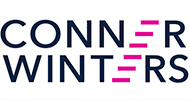|
||||||||||
Investigations and White-Collar Defense Alert |
||||||||||
DOJ Looks to Ramp Up Corporate Prosecutions: Cause to Consider Your Compliance EffortsLess than a year into the Biden administration, the Department of Justice (DOJ) has signaled a shift towards increased scrutiny of corporate misconduct. Under the Trump administration, prosecution of securities fraud, antitrust, and other corporate crimes hit record lows. Those four years continued a downward trend of white-collar prosecutions, which had been decreasing since the mid-1990s.1 In a recent memorandum, DOJ characterized its fight against corporate crime as a “top priority”2 and announced three new actions the department will be taking to show its commitment to the fight. First, DOJ is strengthening its efforts to ensure individual accountability by reinstating prior guidance related to a company’s ability to obtain cooperation credit. Specifically, DOJ will now require that companies identify all individuals involved in misconduct, regardless of their position, status, or seniority in the company, and provide all related, non-privileged information in order to obtain cooperation credit. This marks a departure from past practice, which permitted a company to limit its disclosures to individuals the company deemed, in its discretion, to be “substantially involved” in the misconduct. Second, DOJ has issued new guidance on consideration of a company’s past misconduct. Prosecutors are now directed to consider all past misconduct by a company, rather than limiting consideration to similar past misconduct. For example, DOJ’s examination of a potential antitrust violation will no longer consider solely whether a company has past antitrust violations. Instead, this review of a company’s record will now include the full panoply of past criminal, civil, and regulatory misdeeds. In DOJ’s view, this approach better accounts for a “company’s overall commitment to compliance programs and the appropriate culture to disincentivize criminal activity.”3 Third, DOJ will increase the use of corporate monitorships, effectively rescinding any prior guidance that such monitorships would be the exception and not the rule. Prosecutors are now free to require imposition of an independent monitor to satisfy them that a company is in compliance with its deferred prosecution agreement (DPA) or non-prosecution agreement (NPA). These steps likely mark the beginning of an increased crackdown on corporate misconduct. As part of its renewed focus on white-collar crime, DOJ announced that it is creating a Corporate Crime Advisory Group within the department. That group will be tasked to broadly consider the department’s new guidance measures and recommend additional enforcement measures and policy changes. Given this renewed focus on white-collar crime, it is more important than ever for companies to re-evaluate their internal compliance programs and ensure they are following best practices. This means evaluating whether they have policies, procedures, and standards of conduct in place that are relevant, current, and easily understood by employees. Companies will also need to be able to demonstrate that their policies and procedures are followed, and if not, accountability is taken seriously. Training and education also play an important role in ensuring that the company is staying current with applicable regulations and best practices. Finally, companies need to ensure that they are tracking and responding to compliance issues when they arise. As part of this effort, companies should consider creating open channels of communication for employees, such as anonymous hotline reporting, that facilitate the reporting of misconduct. This allows companies to be proactive in investigating potential issues and correcting them—possibly before they become criminal matters. In the words of Deputy Attorney General Lisa Monaco: “[C]ompanies serve their shareholders when they proactively put in place compliance functions and spend resources anticipating problems. They do so both by avoiding regulatory actions in the first place and receiving credit from the government. Conversely, we will ensure the absence of such programs inevitably proves a costly omission for companies who end up the focus of department investigations. Please contact us if you have any questions about this development or wish to explore refining and enhancing your company’s compliance culture and policies. Sources: 1 https://news.bloomberglaw.com/us-law-week/trump-oversees-all-time-low-in-white-collar-crime-enforcement |
Isaac Ellis's practice focuses on litigation and investigations. Isaac has served as trial counsel in jury and non-jury trials and conducted investigations for corporate clients in a variety of matters involving federal regulatory compliance, accounting fraud and irregularities, employee embezzlement, whistleblower complaints, retaliation, and many others.
|
|||||||||
| Subscribe | Unsubscribe | ||||||||||

